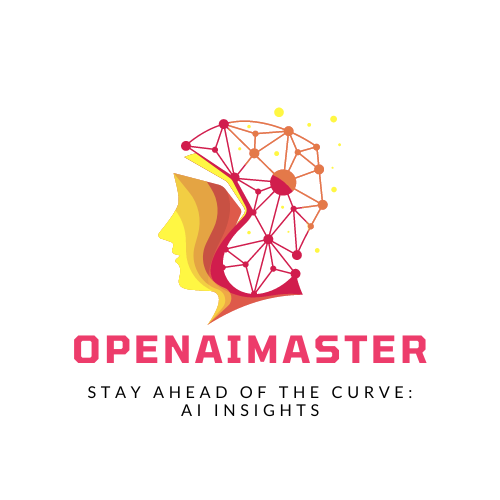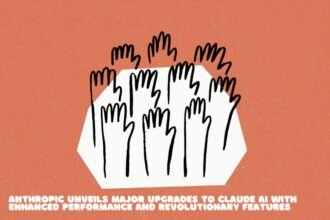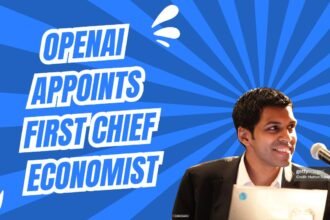Goldman Sachs, one of Wall Street’s most influential players, is doubling down on artificial intelligence (AI). The banking behemoth’s aggressive push into AI technologies is not just changing how it does business—it’s setting the stage for a potential revolution in the financial sector and beyond.
AI Investments and Economic Impact
Goldman Sachs isn’t just dipping its toes into the AI waters; it’s diving in headfirst. The firm is part of a larger trend that’s seeing tech giants and major corporations pouring an estimated $1 trillion into AI infrastructure. This includes massive investments in data centers and specialized computer chips designed to power AI systems.
But what exactly is AI, and why is it such a big deal? At its core, AI refers to computer systems that can perform tasks that typically require human intelligence. This includes things like recognizing speech, making decisions, and even creating content. The latest buzz is around “generative AI,” which can create new content, from text to images, based on vast amounts of training data.
Goldman’s bet on AI isn’t without its skeptics. Some industry watchers question whether these enormous investments will pay off in terms of increased productivity and economic returns. It’s a high-stakes gamble, with the potential for either groundbreaking innovations or costly missteps.
Transforming Financial Services
So, how exactly is Goldman Sachs putting AI to work? The applications are wide-ranging and potentially game-changing:
- Smarter Trading: AI is helping Goldman make more informed decisions about when to buy or sell stocks and other financial instruments. Imagine a super-smart computer assistant that can analyze countless pieces of market data in seconds, spotting trends and opportunities that human traders might miss.
- Automated Customer Service: If you’ve ever applied for a loan or sought investment advice, you know it can be a time-consuming process. Goldman is using AI to speed things up, with systems that can process loan applications and even provide automated investment tips.
- Boosting Efficiency: One of the most exciting applications is in software development. Goldman has deployed AI tools that can actually write computer code, making their programmers about 20% more efficient. It’s like having a tireless assistant that can handle the repetitive parts of coding, freeing up human developers to focus on more complex problems.
The AI Job Revolution
While the potential benefits of AI are enormous, there’s also a looming question: What does this mean for jobs? Goldman Sachs’ research paints a picture of significant change ahead. They predict that AI could automate about 25% of current jobs across various industries. That’s a staggering figure—potentially affecting 300 million jobs worldwide.
However, it’s not all doom and gloom. While some jobs may become obsolete, new roles are likely to emerge. The key will be adapting to this new landscape. Workers may need to develop new skills to work alongside AI systems or to manage the new technologies.
Interestingly, Goldman’s researchers believe that the overall impact on employment might actually be positive. As AI boosts productivity, it could lead to economic growth and the creation of new job opportunities we can’t even imagine yet.
Economic Crystal Ball
Looking ahead, Goldman Sachs’ economists are painting an optimistic picture of AI’s impact on the global economy. They forecast that AI could boost global GDP—the total value of all goods and services produced worldwide—by up to 7% over the next decade. To put that in perspective, that’s like adding the entire economy of Japan to the global financial system.
This growth is expected to come primarily from increased productivity. AI could help workers and businesses do more with less, automating routine tasks and freeing up humans to focus on more complex, creative work.
However, don’t expect this AI-driven boom to happen overnight. Goldman’s experts believe we won’t see a significant impact on GDP until around 2027. This lag is due to the time it takes for businesses to adopt new technologies and for workers to adapt to new ways of working.
Challenges on the Horizon
Despite the rosy forecasts, Goldman’s AI journey isn’t without its hurdles. One major challenge is the sheer cost of implementing these new technologies. Developing and maintaining AI systems requires significant investment in hardware, software, and skilled personnel.
There’s also the question of whether current AI technologies can live up to the hype. Some critics argue that while AI is impressive at certain tasks, it still struggles with complex problem-solving that requires human-like reasoning and creativity.
Regulatory and ethical considerations are another potential roadblock. As AI systems become more powerful and pervasive, questions about data privacy, algorithmic bias, and the responsible use of AI are coming to the forefront. Goldman Sachs will need to navigate these issues carefully to avoid running afoul of regulators or public opinion.
The Road Ahead
Despite these challenges, Goldman Sachs shows no signs of slowing its AI ambitions. The firm continues to explore new applications for AI across its business, from improving risk management to enhancing client services.
As AI technologies evolve, Goldman aims to stay at the cutting edge, integrating these advancements into its core operations. However, the firm is also maintaining a cautious approach, ensuring that its AI initiatives comply with regulations and meet high standards for data protection and ethical use.
The stakes are high, not just for Goldman Sachs, but for the entire financial industry and the global economy. If the firm’s big bet on AI pays off, it could usher in a new era of innovation and efficiency in financial services. But if the challenges prove too great, it could be a costly lesson in the perils of chasing the next big thing.
One thing is certain: Goldman Sachs’ AI experiment is worth watching closely. It may well provide a glimpse into the future of not just Wall Street, but the global economy as a whole. As we stand on the brink of this AI revolution, the only question that remains is: Are we ready for the changes to come?




